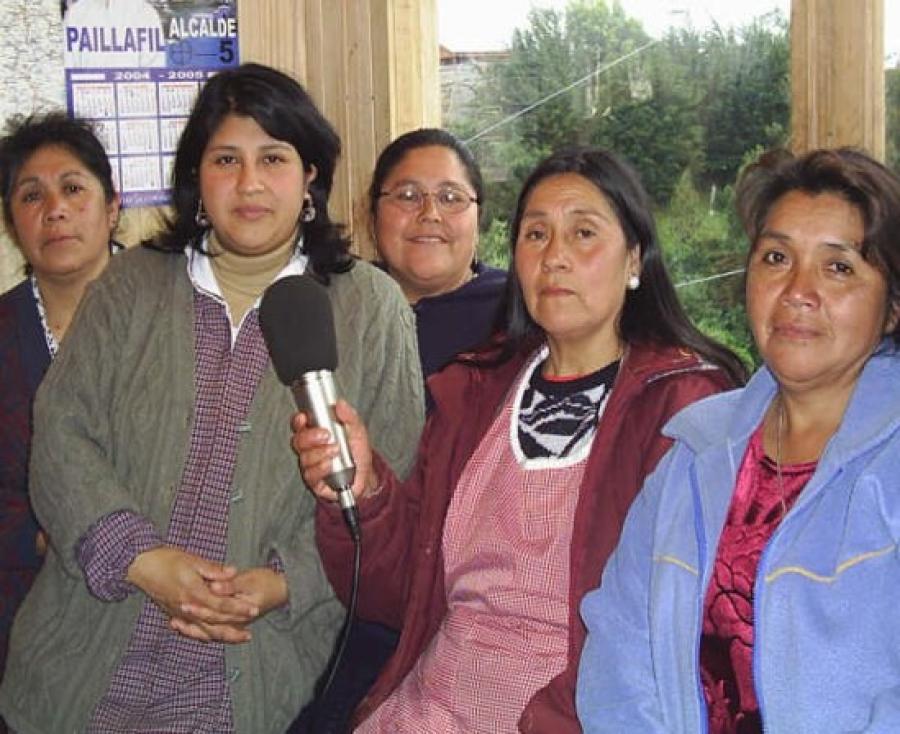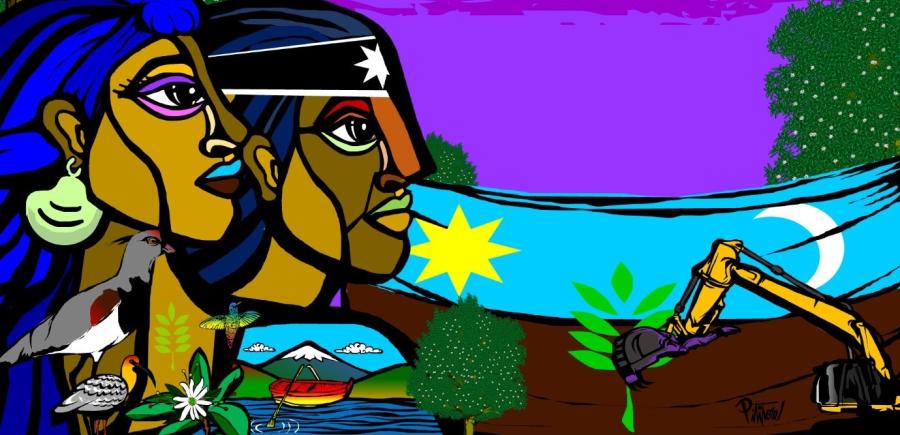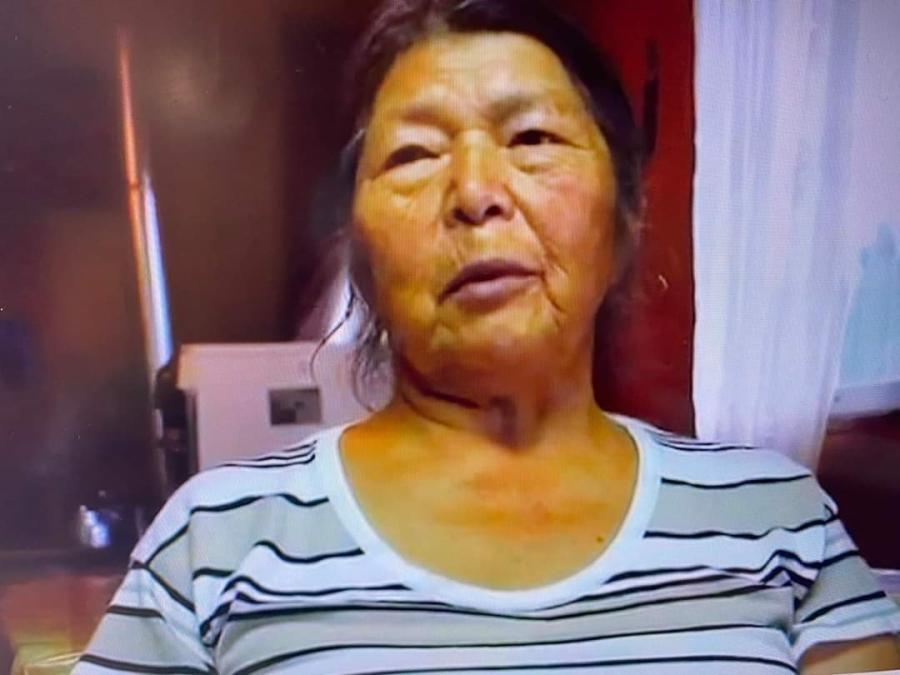It is as though I had no childhood. I look for it, but I can't find it.
Repression has repercussions far beyond its immediate victims. The files of PIDEE - Protection of Youth Damaged by State of Emergency, an organization founded in 1979 and dedicated to healing childhoods shattered by political repression in Chile -give evidence of this.
These files are about children and youths scarred by torture, detention, disappearance, execution, or exile of a close relative during the many states of emergency in Chile since 1973. Some of the 3,000 youths who have been treated at PIDEE over the last six years have themselves been directly subjected to beatings, torture and imprisonment, and they have undergone severe trauma. But the majority have witnessed the brutal invasion of their home by armed men who threaten, beat up and often carry off a member of a family. They suffer the anguish of this sudden absence in terror of permanent loss. As children, they have no means by which to defend themselves or to understand what has happened.
When looking through the reports, one sees how repression destroys childhood. All these children have shown extreme behavioral shifts from being "normal", "happy", "playful" and "obedient" to being aggressive, irritable and fearful with constant crying, restlessness, nervous tics, stuttering and an extreme dependence upon adults (usually the mother or grandmother). Many have eating problems (either a loss of appetite and extreme anorexia - or overindulging - and obesity) or difficulty sleeping (bedwetting, nightmares of soldiers and death); fall behind in schoolwork (poor memory, forgetting how to read, dyslexia, inability to concentrate). Some of the children of the exiled have nightmares of being totally abandoned. There is an extreme fear of the dark among these children, as well as a fear of uniforms.
Juan (3 years and 8 months old), who was extremely frightened by his mother's violent arrest at home, began stuttering when he saw drawings of a traffic cop allowing a schoolboy to cross the street: "Is he being taken a prisoner? A small boy and a cop? Why do they want to take him a prisoner?" And when he saw a drawing of plainclothesmen with a police van entering a barrio, he described them as "a soldier walking and another killing."
Many of these children complain of headaches (a symptom similar to torture victims), and some of the children even take on the same pains of their parents who were beaten and tortured.
When (Lisa) was 4, her father was arrested...While in prison, he was subjected to serve torture, including being punched in the stomach by several men simultaneously. Since then, he has suffered severe stomach pains. During his first four months in prison, (Lisa) was not allowed to visit him, and she developed severe anorexia. Since that time, she has stomach pains and anxiety,. She has difficulty concentrating and has become increasingly introverted.
Such children say they feel alone and isolated in a society that has adapted to longterm military rule and the need for secrecy. Neighbors employers and teachers tend to shun these families for fear of reprisal. Classmates may see the PIDEE children as orphaned misfits, and through jokes and jibes, there is a rejection by most friends which is exacerbated by the child's own irritability, constant crying and aggressiveness. A sense of confusion is introduced by the difficulty of the child to understand why their relative has been so violently abused, even though the child may repeat what she has been told by other adults: "Because they think in another form than those in the government, I'll never see mama or papa."
Not knowing whom to trust in school, these children usually say nothing, becoming more introverted, and internalizing the self-censorship practiced by adults in repressive societies. Nine-year-old Alfonso says,
I don't get together with the other kids (in school). I don't speak. I keep quiet in school and everywhere. I speak alone. I think alone.
Some adults, because of their own anxiety and inability to confront the child's anguish, avoid talking about the event, thus confirming to the child the need to maintain a circle of silence about the repressive act. This avoidance of the subject has been shown to make the child's anguish even more extreme. Conversely, details of torture and detention can also augment the child's extreme anxiety and feeling of powerlessness. Interestingly, this self-censorship is found more often among those of the internally exiled (relegados).
During play therapy at PIDEE, children talk a lot about death, the absence of the father, unemployment and jail; in fantasy, often it is the child who tries to liberate his or her imprisoned parent; in dreams they speak about the painful incident repeatedly, or they envision the detained disappeared returning home. Some of the children also have anger and strong desires for revenge:
I want to take revenge because they hit my mother imagination...(Alfonso, age 9).
(I get angry) when I see the soldiers in the police van...When they place the bombs, it makes me angry they don't blow themselves up...I want to take that same machine gun and shoot them until there are no more bullets...and at times, it makes me angry that they don't sack this government (Claudio, age 11).
In their play and fantasies, these children display an extreme preoccupation with their family, such as "I'm worried that my mother will be alone" or "that he'll never be able to return ever again, that they've disappeared him" or "(my father) suffered a lot and lost a lot of weight [during his detention]". Given this preoccupation, there is often an excessive sense of guilt among these children, as though they themselves were responsible for what occurred. This "precocious or premature adulthood" may occur among children (especially young boys) who try to take the place of the detained father in the family: "With things the way they are, I can't think like a child. I have to be a man" (Fidel, age 12).
The mother, too, may be absent, either emotionally or physically. She may herself have been detained and/or tortured, or be in search or work or in search of a disappeared husband. The vision of the mother in all these children's eyes is one of solitariness, sadness and worry.
Emotional preoccupation with the family may also be explained by the economic violence Chilean families have experienced for several years. High unemployment (30 percent in Santiago and 70-80 percent in the barrios) has made it hard for some families to stay together. Families become separated by the search for work. Some family members may move in with relatives (usually the grandparents) while others seek whatever temporary work (pololos) she can find. Such continual movement and changes in the family-member roles adds to the anguish of the child.
Among younger children (under 10 years of age), there appears to be a regression, an attempt to return to a phase of development where reality was more pleasant. Indeed, in all these children and adults, there is an idealization of both the absent relative and the "happy" past.
The intensity and duration of these children's emotional and physiological disturbances depend very much on the intensity of repression to which they and their family members have been subjected. During the first years of the dictatorship, there were mass executions and many political prisoners in concentration camps. Between 1975 and 1977, disappearance became the means of political repression. By the 1980s, anonymous kidnappings, mass arrests and "shootouts" between hundreds of soldiers (backed by helicopters) and lone "suspects" had become the new strategy. By 1982-84, 851 cases of torture during detention were reported to the Chilean Human Rights Commission. The repression continues, with a combination of these tactics.
A child's ability to return to normal childhood is dependent upon a loss of fear that the act will be repeated. A belief that the violence has been finalized is fundamental to the development of a basic sense of security. Unfortunately, many of these children have witnessed the violent invasion of their home and the beating up and dragging away of a parent more than once.
For children of prisoners condemned to death in some indeterminate future, their emotional equilibrium is so strained that they have an intense desire to put an end to it. Eight-year-old Rodrigo, whose father has been condemned to death;
I believe that it is preferable that they kill him before he continues suffering in jail...It is preferable that they kill him rather than continuing to wait…
Similarly, for children of the disappeared, the anxiety of possibly seeing one's relative is constant, perhaps never to be resolved. If the disappearance is resolved (and it is usually negatively), it can be devastatingly depressing. Sonia, now 18 years old, received the news of the death of her father, disappeared when she was eight years old. She says,
I feel so distrustful now when I walk on the street...Whatever noise or person frightens me...I turn on all the lights and search throughout the house. I am afraid. I feel very insecure. I remember my father and get a lump in my throat.
Therapy: No Defense Against Continued Violence
Through the combined therapy of individual and familial interviews, play, cultural workshops and "psychopaedagogy" at PIDEE, most of these children have begun to develop a capacity to adapt to a new situation in life. They become close to others with similar shattering experiences and feel less stigmatized and isolated. Yet this does not mean an end to their anguish or fear, for the political and economic repression continues. As one PIDEE psychologist remarked,
Unlike in most therapy, the external reality in Chile is objectively threatening and dangerous; their fears are not imaginary or unfounded...Nor can we assure the children that what happened to them will not happen again.
Within such repression there is a loss of boundaries between the external and internal world: the external world violently invades to destroy the family, activating and sometimes reactivating anguish and extreme fear, and the internal world becomes rigid and fragile with a loss of emotional equilibrium and a basic sense of security. These children are not only denied a childhood, but they are children who are forced to continually relieve a violent past in their daily lives - lives in which their fears and anxieties and nightmares are indeed real.
Pedro (age 4) July 25, 1984
The father is detained and the home is violently destroyed. Together with the father, the mother and the two small children are detained. At present, the father is in prison awaiting a death sentence. The mother, after 90 days in the Women's Jail with the eight-month-old daughter, is released. Pedro was three years and 10 months old when detained with his mother, and was returned to his home alone after six hours. When Pedro was reunited with his mother, he reacted with constant crying, saying that his mother had been beaten and that he thought she was dead. Immediately, Pedro began to show signs of difficulties: restlessness, insomnia, nightmares, loss of appetite, nervous tics, constant crying, loss of weight, extreme fears, excessive demands and dependency on the mother.
In play therapy with animal figures, death and its inexplicability was a preoccupation for Pedro: "I don't know, they kill them, I don't know why they kill them."
"That in the middle is a thing where they put the people. That on the outside is a thing where it encloses that other thing." He spoke about the father and the jail.
Article copyright Cultural Survival, Inc.



